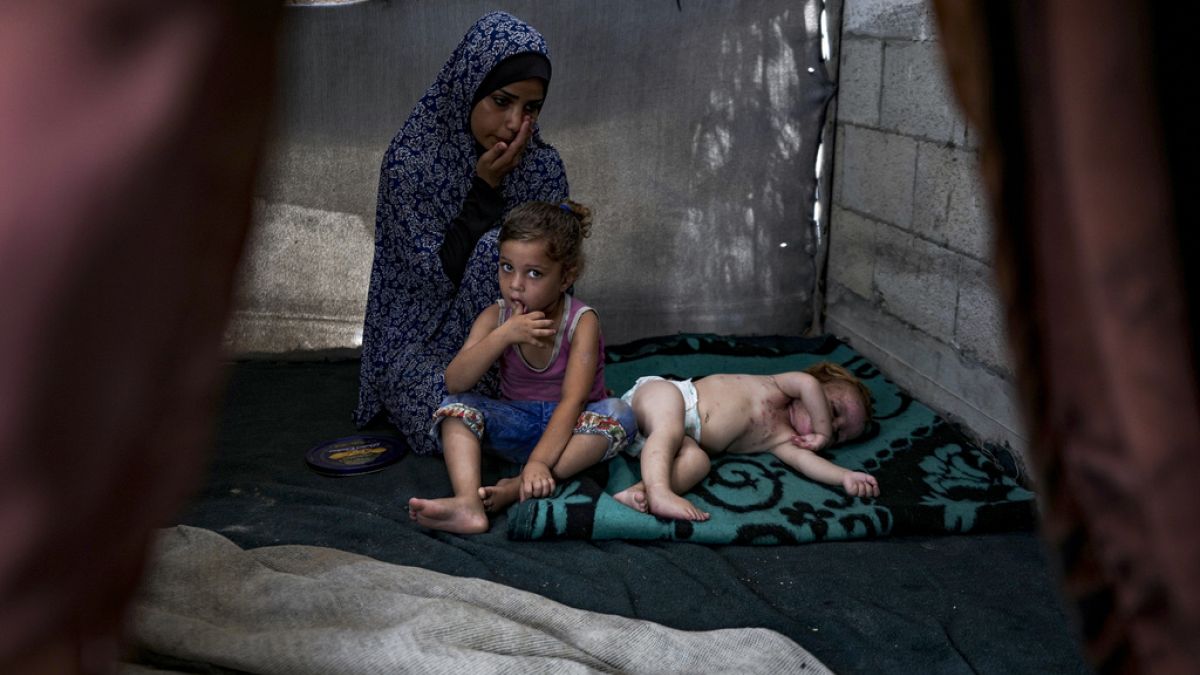As the war between Israel and Hamas in Gaza continues, nearly eleven months in, Palestinians in the region are still struggling to access basic necessities such as food and clean water. The ongoing conflict has restricted the entry of much-needed aid into Gaza, leaving many families to rely on charity kitchens for their survival. These makeshift kitchens provide the main meal of the day, typically consisting of rice with chicken only provided once a week. Abu Hamzah, who runs a small charity kitchen in Deir al-Balah, estimates that between 8,000 and 10,000 displaced people benefit from his services. However, the process is not easy, as families must wait in long lines in the scorching sun for hours to receive their meals.
In addition to food shortages, accessing clean water has become another daily struggle for Palestinians in Gaza. Many wells have been destroyed in Israeli airstrikes, leading to severe water scarcity across the region. In Deir al-Balah, residents must queue for hours to fill up their bottles and jerry cans from water barrels. The lack of access to clean water has further exacerbated the living conditions for many families in Gaza. Mohamed Hanounah, a displaced man, expressed the desperation felt by many when he stated, “There is no life here. We are not really living. Even donkeys in Gaza have better lives than the one we are living now.” The struggle to obtain water is made even more difficult by the long distances residents must walk to fetch and carry water back to their living spaces.
The ongoing conflict has created a humanitarian crisis in Gaza, with basic necessities becoming increasingly scarce for the residents. International aid organizations have struggled to deliver supplies and support to those in need due to restrictions and blockades imposed during the war. This has left many families dependent on local charities and relief efforts for their survival. Um Yehia Shaheen, a displaced woman from Gaza City, described the daily hardships faced by residents, “Life is hard, there is nothing. We come to the charity kitchen and stand 4 to 5 hours waiting our turn every day in the sun.” The lack of access to essential resources like food and water has taken a toll on the physical and mental well-being of those living in Gaza, further deepening the humanitarian crisis in the region.
The impact of the conflict extends beyond just the physical shortages of food and water, as the psychological toll on residents in Gaza has also been significant. The constant fear and stress of living in a war zone, coupled with the uncertainty of when basic needs will be met, have taken a toll on the mental health of many individuals. Children, in particular, have been heavily affected by the trauma of war, leading to long-term emotional and psychological distress. The lack of access to proper healthcare and mental health services further compounds the challenges faced by residents in Gaza, leaving many feeling hopeless and desperate for relief.
Efforts to address the humanitarian crisis in Gaza must include providing immediate assistance in the form of food, water, and medical supplies to those in need. In addition, long-term solutions must be implemented to ensure that Palestinians have access to basic necessities on a consistent basis. International aid organizations and governments must work together to lift restrictions on the entry of aid into Gaza and provide support for the rebuilding of infrastructure, such as wells and water systems, that have been destroyed during the conflict. The residents of Gaza deserve to live in dignity and safety, free from the daily struggles of accessing essential resources for survival. It is imperative that the international community takes action to address the humanitarian crisis in Gaza and provide the necessary support to alleviate the suffering of the residents in the region.











